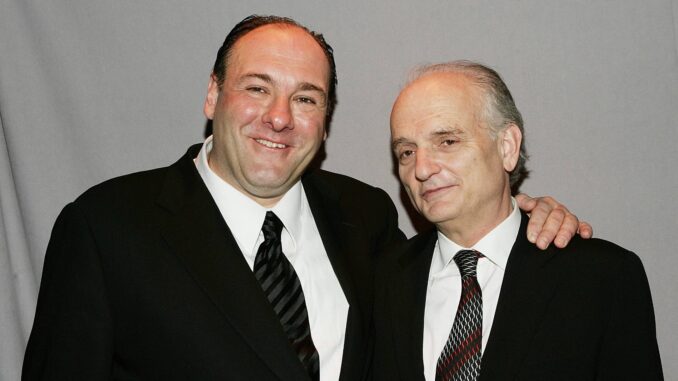
Tony Soprano was a made man
When I first moved out of Chicago and went to a deli counter to order some lunch meat, I didn’t think twice about it.
“Give me some ‘gaa-baa-gall’ please.”
The store guy looked at me like I was just off the boat and said he had no idea what I was asking for. I had forgotten. In most places in this country, it’s capicola. But in Chicago, and New Jersey and Brooklyn, the bastardized pronunciation of the popular spiced Italian ham is “gaa-baa-gall.”
And if you closely watched the HBO hit series “The Sopranos,” you will have noticed when Tony Soprano was ordering lunch, it was “gaa-baa-gall.”
James Gandolfini — who played Tony Soprano — died last week of a heart attack. Thursday, 1,500 mourners gathered in New York to remember him.
He was so convincing as a mob boss that we often confused Gandolfini with his character. The side benefit of his stunning portrayal was he brought Italian-American culture to white bread America. And even though many Americans don’t like it, within that Italian-American culture he brought us the Mafia.

Americans have been fascinated, even mesmerized, by it.
The Godfather movies first brought the Italian culture to the mainstream. But they were more of a glorification of the Italian mob life. The Sopranos made it real. There were rules and codes and honor and words you were bound by in both versions. But the Sopranos showed the underbelly of life in organized crime.
When I was a teenager, I remember, my Uncle Tony (I have so many Uncle Tonys you’d never be able to identify which one) told me he came across a few stereos that “fell off the back of a truck” and wondered if I needed one cheap. I didn’t. And back then, I didn’t realize that was a polite way of saying someone, someplace, boosted these stereos and they were now being unloaded at a, ah, discount.
Mainstream America learned about this stuff from Tony Soprano.
Lots of Americans also learned about baked ziti — Ziti al Forno — from the Sopranos. One reporter here — who I suspect has no Italian DNA — would sometimes think of Tony Soprano when she’d sit down to dinner with that on the menu. It was a favorite of Carmela, Tony’s wife. When you connect to a character so strongly as so many of us did, you might just put baked ziti on your list of things to cook.
The day after Gandolfini died, the New York Post’s front page struck me. The lead headline screamed, “Tony Soprano Dead.” For me, it was an homage to Gandolfini. It was the way the Post would have handled the death of a real mob boss. To many of us, he was real.
Tony was, indeed, a complex character. A crazy, cool cat, who I suspect we would have liked to have over for a bite to eat, I also suspect he’d agree with one of my favorite sayings: “Ci no ne un poco pazzo, non puo entrare nella casa mia .”
“Unless you are a little bit crazy, you are not welcome in my house.”
Rarely will we see the likes of James Gandolfini. He was a paisan to me. And, I suspect, a complaint to many others.
